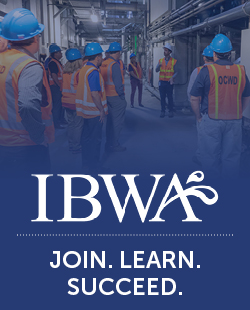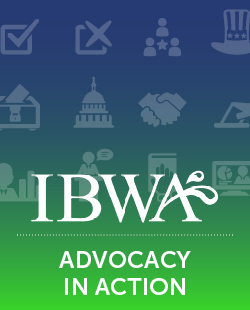IBWA STATE AFFAIRS
ISSUE STATEMENT
10/12/00
ISSUE: SOURCE LABELING
POSITION: IBWA opposes all state labeling legislation and regulation that is different from or in addition to FDA requirements for source labeling.
BACKGROUND: Prior to 1995, the U.S. Food and Drug Administration (FDA) had not established the Standard of Identity for Bottled Water. States were allowed to determine what bottled water terms and definitions would apply. In addition to determining what type of water was bottled, some states required other labeling such as the name and/or location of the source.
In 1995 when FDA established the Standard of Identity for bottled water, FDA was very careful to explain the scope of the regulation with regard to preemption of existing state terms and definitions, including requirements for source labeling. Yet, states such as Louisiana, Pennsylvania, Massachusetts, New Jersey and Texas continue to require the source location appear on a label.
FDA specifically addressed the federal preemption and source labeling in the 1995 Final Regulation [21CFR165.110].
-“[T]he agency concludes that the absence of information concerning the exact water source (e.g. specific municipal source, the well number, spring’s legal name, address of the source) is not a material omission that would render the label misleading because bottled water must meet FDA’s requirements which provide the consumer with assurances as to the safety, quality, and type of source. While the agency recognizes that some States require the geographic source identity, FDA is simply not persuaded that the additional information is a material fact that must be disclosed.” [Federal Register 11/13/95, 60 FR 57076-01]
– “The brand name and the name of the manufacturer distinguish bottled waters as much as specific source labeling would. According to § 101.5(a), the label of a food in packaged form must specify conspicuously the name and place of business of the manufacturer, packer or distributor. This labeling requirement provides consumers with the necessary information to contact the firm and obtain information (e.g., the name and location of the source, the well number, or the spring’s legal name) that is not provided on the label if they are interested. Therefore, FDA concludes that there is no basis on which to require that information concerning the specific source of bottled water appear on the label.” [Federal Register 11/13/95, 60 FR 57076-01]
-Under section 403A(a)(1), the Agency explained, “a state may not establish or continue in effect a standard of identity for a food…if the state standard is not identical to the federal standard.” This includes state requirements for source labeling.
-FDA does not object to the optional label declaration of more specific information concerning the water source because such information may be useful to consumers. “However, the agency does not agree that it should require specific source labeling, or that the lack of such labeling means that the label is misleading and vague.”
-Under section 201(n) of the act, the agency must consider whether the information is a material fact whose nondisclosure will render the label misleading.
FDA concluded that the absence of the specific water source is not a material omission that would render the labeling misleading because bottled water must meet FDA’s requirements which provide the consumer with assurances as to the safety, quality, and type of source (e.g. artesian, spring, and well). While the agency recognizes that some States require the geographic source identity, FDA simply is not persuaded that the additional information is a material fact that must be disclosed.
-Under the federal rule, bottled water from municipal water supplies that has not been treated to meet the standards for purified water under the U.S. Pharmacopiea, must reveal the municipal source on the label.
TALKING POINTS
-FDA addressed source labeling in its final rule on the Standard of Identity for Bottled Water and specifically concluded it should not require specific water source labeling. The FDA also concluded that the lack of such labeling does not render the label misleading or vague.
-FDA requires bottled water sources to be inspected and approved by the government agency having jurisdiction and in conformance with all applicable laws and regulations. Thus, the specific name of the source is not material to ensure the safety of the product.
-FDA regulations provide alternative names for sources (e.g., artesian, spring, well, etc.). Consumers can have confidence that bottled water is from a certain type of source with an appropriate definition.
-The federal Standard of Identity for Bottled Water explicitly preempts state terms and definitions including source labeling requirements.
-Non-purified bottled water from a municipal water supply must reveal the source on the label.
-Nothing prohibits a bottler from voluntarily naming the source on the label. Indeed, many brands do so.


